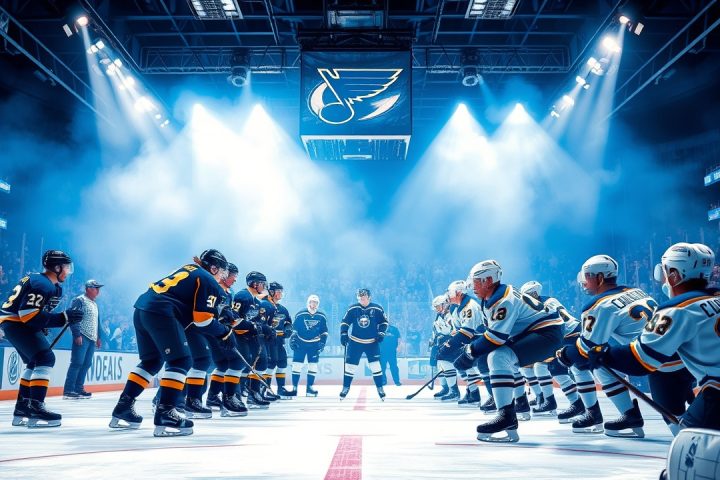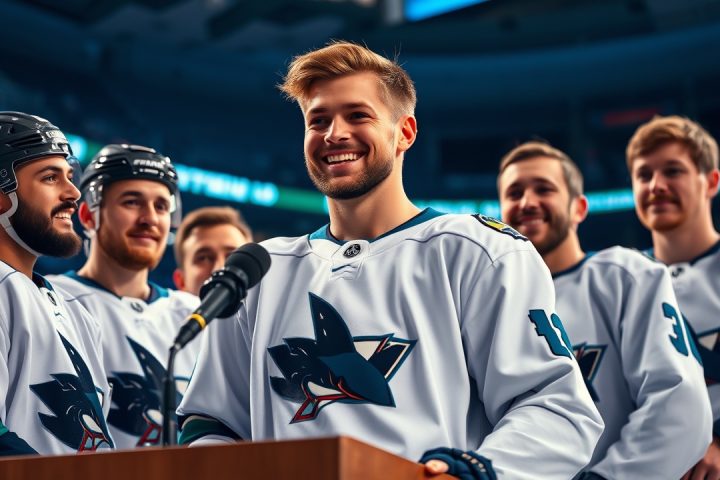The Trade that Altered the NHL Landscape: Reflections and Offseason Updates
As the hockey world takes a breath in late July, fans can look back on a significant anniversary: the three-year mark since the Matthew Tkachuk trade – a move that has reshaped team dynamics in the NHL. For those who witnessed the unfolding of that deal, the day it was announced remains vivid. Many, including myself, initially believed that the Calgary Flames struck gold in acquiring a substantial return from the trade.
However, looking back on that moment with the clarity of hindsight, it’s evident that the optimism regarding Calgary’s haul has diminished significantly. Just to recap, Tkachuk had previously signaled his desire to explore options outside of Calgary by refusing to sign an extension. This left Flames’ general manager, Brad Treliving, scrambling for a trade partner amid limited choices as Tkachuk revealed a shortlist of teams he would consider.
When we analyzed possible destinations for Tkachuk, Florida was far from the radar screens of potential suitors. Instead, projections centered around seven other teams. Yet, the assets the Flames eventually acquired in return were astonishing. Rather than merely getting decent value, Calgary received Jonathan Huberdeau, the league’s top point scorer at that time, alongside underrated defenseman MacKenzie Weegar, a first-round draft pick, and a promising prospect. It looked like a major win for Calgary, earning them top marks from five writers who evaluated the trade, with two even bestowing an A+ grade on the Flames.
Shifting Perspectives
Fast forward three years, and the perspective has shifted. The trade may very well be regarded as one of the most uneven transactions of the salary cap era. The crux of this shift lies in two unforeseen developments: Tkachuk’s seamless integration into the Panthers’ lineup as a crowning jewel in their championship ambitions and the subsequent struggles faced by the Flames organization. Tkachuk’s initial transition to Florida was rocky, but it ultimately solidified the team’s postseason success. Conversely, the Flames found themselves in the perilous situation of overcommitting resources to their new acquisitions, with Huberdeau’s performance dropping off significantly since joining. His hefty contract now raises eyebrows as potentially one of the most burdensome deals in the league. Furthermore, the Flames have not qualified for the playoffs during this timeframe, cementing the narrative that the Panthers emerged victorious from the deal.
Offseason Landscape
Looking at the broader offseason landscape, it seems that July has slowed to a crawl for many teams. An uptick in the salary cap has done little to spark activity, leaving fans speculating about the implications of a quiet summer. The latest rankings on team broadcast performance revealed that an Original Six franchise occupies both the top and bottom positions of the list. Additionally, the discourse surrounding draft selections has ignited as analysts like Scott Wheeler examine the 2022 picks, stirring emotions, particularly among Montreal fans who might feel frustrated over recent decisions.
Worried about your team’s current situation? Shayna Goldman offers insight into various offseason dilemmas that teams face, calling into question the strategies that have unfolded so far. And, for fans passionate about team aesthetics, recently published jersey rankings have ignited a spirited debate—even sparking strong reactions in online forums.
Thus, while the Tkachuk trade remains a pivotal moment echoing through the league, the present July landscape is indicative of a lull, with dormant activity awaiting the next wave of movement to revitalize fan engagement. Yet, history shows that unexpected trades can still transpire in the offseason, reminding us that the NHL clock never truly stops ticking.




